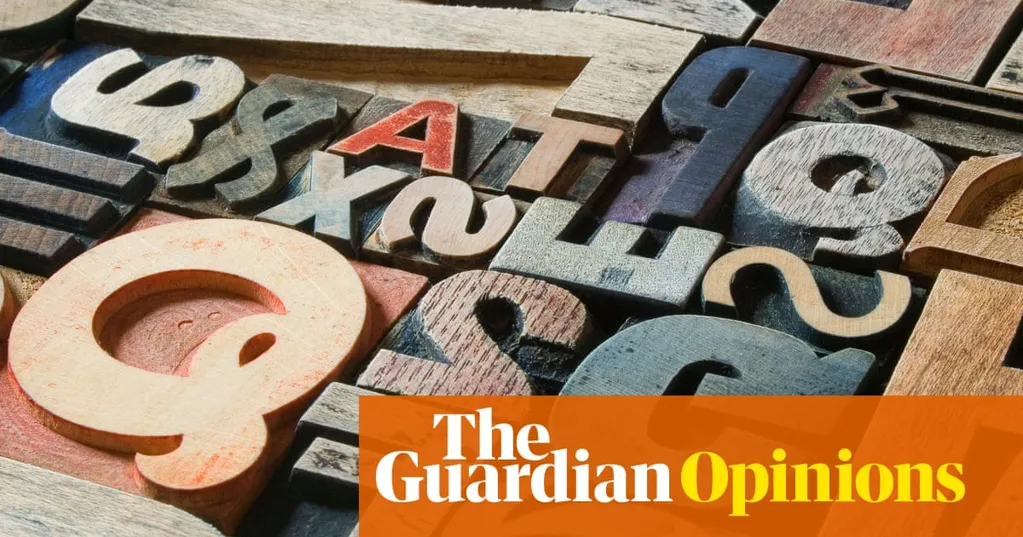'Got' was changed during the editing of an opinion piece, leading to correspondence lamenting a slide into American English. But language isn't a fortress.
In Shakespeare's Henry VI, Part II, a messenger breathlessly announces to the king that, "Jack Cade hath gotten London bridge". Hold this late 16th-century text in mind as we fast forward to last week when Martin Kettle, associate editor and columnist at the Guardian in the UK, was seen to suggest in an opinion piece that, if King Charles has pushed the boundaries of neutrality, such as with his speech to open the new Canadian parliament, he has so far "gotten away with it".
In a letter published the next day, a reader asked teasingly if this use of "gotten" - and another writer's reference to a "faucet" - were signs the Guardian had fallen into line with Donald Trump's demand that news agencies adopt current US terminology, such as referring to the "Gulf of America".
Another, who wrote to me separately, had first seen the article in the print edition and expected subeditors (or copy editors, if you wish) would eventually catch up and remove "gotten", which "is not a word in British English". She was surprised to find the online version not only unchanged but with the phrase repeated in the headline.
Queries over US English spellings or "Americanisms" form a small but steady strand of correspondence to my office; "normalcy", "airplane" and "hot flash" are among recent contested usages. We explain that while the Guardian was founded in the UK, and this remains its biggest edition, it is 204 years later a global media organisation with two-thirds of its digital audience outside the UK. And the reason some articles use American English is that they are produced by Guardian US, which was launched in September 2007 and works (like Guardian Australia, established in 2013) to serve readers in that country as well as globally. Naturally, local spelling and grammar is followed, although all Guardian articles share a website and one with wider appeal may appear on the front of the UK online edition. Only if a US story is to run in the printed newspaper is it re-edited for British English.
The difference in language works both ways, occasionally leading an American eye to mistake British spelling in an online article for error. "The word 'defense' was spelled 'defence' over and over!" wrote one reader. "I don't need a job, but I'd be happy to help with your editing." I can only hope the above explanation reduces consternation.
Getting back to "gotten", which has been described by the linguist David Crystal in his Cambridge Encyclopedia of the English Language as "probably the most distinctive of all the [American English/British English] grammatical differences". Well, to set the record straight, this did not come from Kettle's pen. He wrote "got" but there was an unwanted change during the editing process, with "gotten" also making it into the web headline. In my view, it was right that the published piece was subsequently amended back to the writer's voice.
However, it would be a mistake to regard language as a fortress. It has always changed. "Gotten" was used in Middle English and Early Modern English (Shakespeare uses it five times, says Crystal), before falling largely out of use in Britain by the early 1800s, except in "ill-gotten". Early copies of the Guardian show some remnant sprinklings: in 1842, it reported that special constables in Rochdale, whose wages had gone unpaid, feared "this money had gotten into wrong hands".
But in the US, where this past participle of "get" had travelled with English colonists, its use continued, and lately appears to be making a return to base. "It's certainly in young people's speech now," says Crystal. "I don't use it at all, but Ben [his son and often co-author] does. You can see the rise in usage if you do an Ngram search," he adds, sending me a Google graph showing frequency in books, with a steep upward curve from around the start of this century.
Crystal says it is also important to note that Americans use both got and gotten. "What this means is that Brits are likely to overuse gotten, thinking it's always a replacement for got when it isn't."
Rebecca Nicholson, who in reviewing the BBC documentary The Rise and Fall of Michelle Mone, had ventured that "once you turn on the faucet of public attention, trying to turn it off again is a sisyphean task", was amazed to find she had written "faucet", and could only think that in the moment it “sounded better”.
Such "borrowing" is a way that natural language shift occurs, and I see the extra force here in "faucet". Nicholson can also summon history in her defence. The OED tells us that, in its first sense, faucet is "a wooden tap for drawing liquid from a barrel, cask, or tub", deriving from the French "fausette" or "fausset" and with earliest known use in Middle English. As a later word for a plumbing fixture, it is "chiefly US", with speakers of English elsewhere typically using "tap".
And there, in whichever glorious variety of English you use, we turn off - but your messages are welcome to flow.
